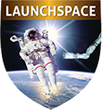Course Details
Course Summary
This course is specially designed for government spaceport operators who are increasingly dealing with commercial launch operations. It provides insight into spaceport operations from the viewpoint of private sector expectations and requirements. A wide variety of important topics are covered. These include procurement of commercial launch vehicles and the related procurement process, payload processing for commercial vehicles, launch campaigns with commercial launch vehicles and clients and related launch operations. A number of examples and case studies are included in a highly interactive classroom setting.
Course Materials
Attendees receive extensive notes and reference materials.
Who Should Attend
What You Will Learn
Course Outline
- Introduction and Course Objectives
Review of course topics and outline. Explanation of course architecture and how it is intended to satisfy attendee expectations. Definition of terms and expressions used in the course. - Launch Vehicle and Launch Procurement Processes
Review of the Interface Requirements Document (IRD) typically used by commercial clients to procure launch vehicles and related services. Discussion of how this document flows into the acquisition of the launch site operations. Commercial vs. US Government Contracts for Launch Services. Mission Management and ICD Requirements and Verifications Management. Overview of Launch Vehicle Physical Interfaces and Configurations. Range Safety Interactions and the Range Safety Process. Meetings, Reviews and Schedules (how to manage and plan accordingly). - Launch Site Payload Processing
Payload Processing Facility Acquisition (Documents, requirements and the contract). Overview of Spacecraft Assembly, Test and Launch Operations. Electrical Power, Communication and Data Interfaces. Contamination Control and Mission Assurance. Spacecraft Processing, Special Tests, Accommodations. Launch Site Organizations and Mission Management on Site. - The Launch Campaign
Spacecraft Arrival, Handling Transportation and Logistics. Procedures, Safety, and Mission Assurance. Overview of Electrical and Mechanical Ground Support Equipment and Processing. Launch Vehicle Hardware Integration Overview. Horizontal vs. Vertical Processing. Multiple Payload Integration and Processing (Dual SC, multi SC, Cubesat, Primary and Secondary payloads, etc.). Ground System Electrical Interfaces, Checkout and Processing, Special tests, etc. Fairing Encapsulation and Physical Access to the Payload. Transportation Operations and Mating to the Launch Vehicle. - Launch Operations
Consolidated Testing (LV and Spacecraft). Mission Dress Rehearsals and Countdown. Scrubs and Contingency Operations. Weather and Range Constraints. Lessons Learned.
Instructor
Steven R. Vernon has accumulated over 25 years of Spacecraft Design and Launch Vehicle payload integration and management experience. He has led launch campaigns for multiple successful space missions, launched from Eastern and Western ranges. His broad experience includes single and multiple payload missions launched on several United Launch Alliance vehicles including Atlas V, Delta II and Delta IV, and the Orbital Sciences Minotaur expendable vehicles. He has lead the spacecraft design, assembly, test and launch operation campaigns for both nuclear and conventional powered space missions. In addition, Mr. Vernon has led system integration and design tasks for several new and modified upper stage systems. He also sits on review boards and is supporting funded studies for sponsors in the civilian and military space communities including studies focused on emerging launch vehicles and systems. He has participated in many first flight articles and mission unique launch vehicle hardware development projects that have successfully flown. Mr. Vernon has authored or co-authored over 25 formal publications.
